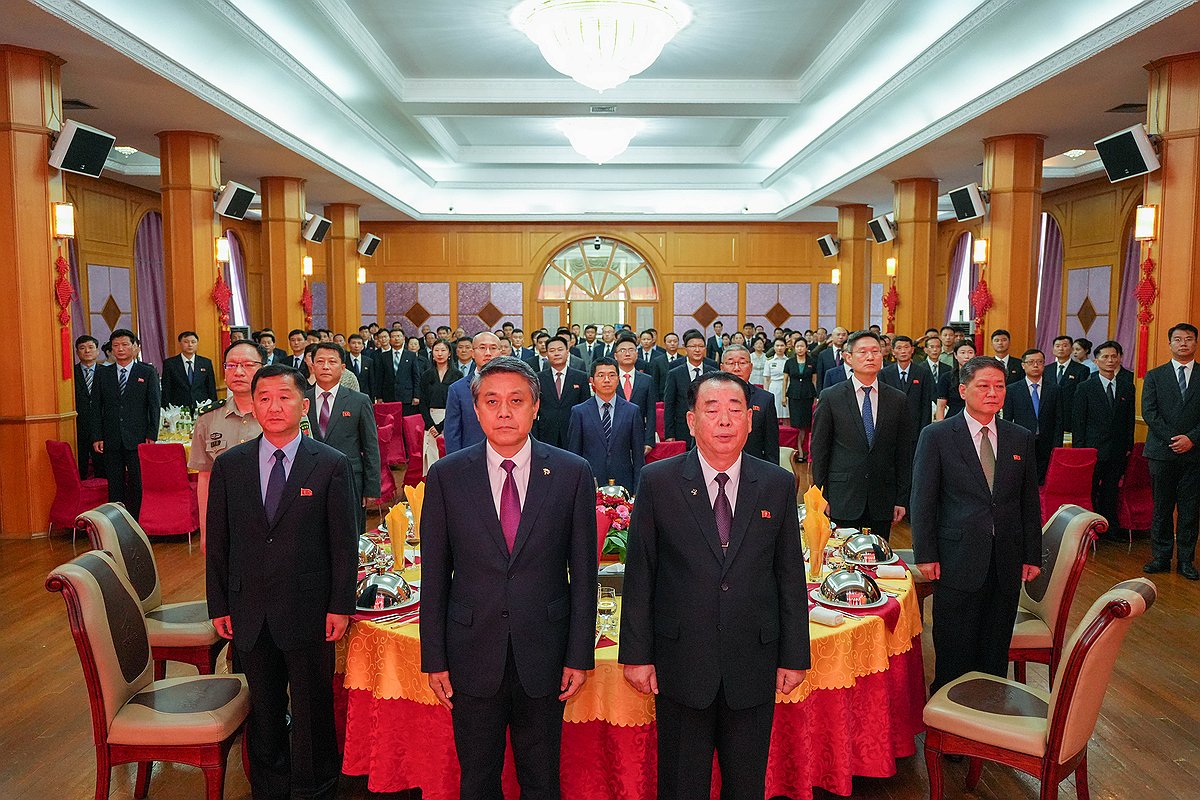Strengthening Ties: North Korea and China Reinforce Bilateral Relations
North Korea has recently emphasized the strength and resilience of its relationship with China, highlighting a commitment to further develop their longstanding partnership. This comes as both nations celebrate the 64th anniversary of their mutual defense treaty, which was signed in 1961. The agreement, forged between North Korea’s founding leader Kim Il-sung and then-Chinese Premier Zhou Enlai, has been a cornerstone of diplomatic and strategic cooperation between the two countries.
The Rodong Sinmun, North Korea’s most widely read newspaper, reported that the party and the republic are determined to continue strengthening and developing friendly relations with China. This reaffirmation of ties underscores the significance of the 1961 treaty, which is described as a key milestone in reinforcing strategic cooperation between the two nations. The paper emphasized that this cooperation is particularly important in the face of global challenges, including “reckless military adventurism and hegemonistic policies by hostile forces.”
Tolong support kita ya,
Cukup klik ini aja: https://indonesiacrowd.com/support-bonus/
Despite efforts by what the newspaper refers to as “enemies of peace” to undermine the unity between North Korea and China, the relationship is portrayed as strong and unbreakable. The newspaper claims that the bond between the two nations remains “sturdiness and invincibility,” reflecting a sense of confidence in their partnership.
North Korea and China have announced plans to work together to elevate their friendship and cooperation to an even higher level, guided by the principles of the 1961 treaty. This move signals a renewed focus on deepening their ties, especially in a geopolitical landscape where international dynamics are constantly shifting.
Evolving Dynamics Between North Korea and China
While historically close, the relationship between North Korea and China has faced some strain in recent years. This has been largely due to North Korea’s growing alignment with Russia, particularly in the context of the ongoing conflict in Ukraine. As a result, Moscow has become a more prominent partner for Pyongyang in terms of political and economic cooperation.
This shift has not gone unnoticed by Beijing, which has long viewed North Korea as a key ally in the region. Despite the evolving landscape, both countries seem to be working towards rekindling their traditional closeness. This effort is likely driven by a shared interest in maintaining stability in the region and countering external pressures from other global powers.
China’s role as a major economic and political partner for North Korea remains significant. The two nations share a common border and have a history of mutual support, especially during times of international isolation or sanctions. This historical context continues to shape their current interactions, even as new alliances emerge.
Implications for Regional and Global Politics
The strengthening of North Korea-China relations has broader implications for regional and global politics. As both countries seek to deepen their cooperation, they may find ways to counterbalance the influence of other powers in the region. This could lead to increased collaboration in areas such as trade, security, and diplomacy.
At the same time, the evolving dynamics between North Korea and Russia may complicate these relationships. While North Korea has shown support for Russia’s actions in Ukraine, it is still navigating the complexities of its foreign policy. Balancing its relationships with both China and Russia will be a critical challenge for Pyongyang in the coming years.
For China, maintaining a stable and cooperative relationship with North Korea is essential for ensuring regional security and preventing the proliferation of nuclear weapons. A stronger alliance with North Korea could also serve as a strategic counterweight to the influence of the United States and its allies in East Asia.
Conclusion
As North Korea and China mark the anniversary of their historic treaty, the emphasis on strengthening bilateral ties reflects a shared vision for the future. Despite the challenges posed by shifting alliances and global tensions, both nations remain committed to upholding their partnership. This commitment is not only a reflection of their historical bond but also a strategic move to navigate the complexities of modern geopolitics. The continued development of their relationship will likely play a crucial role in shaping the future of the region and beyond.







